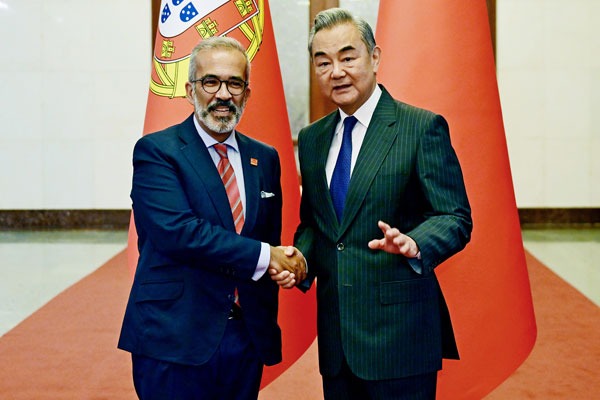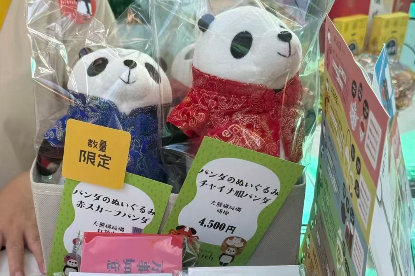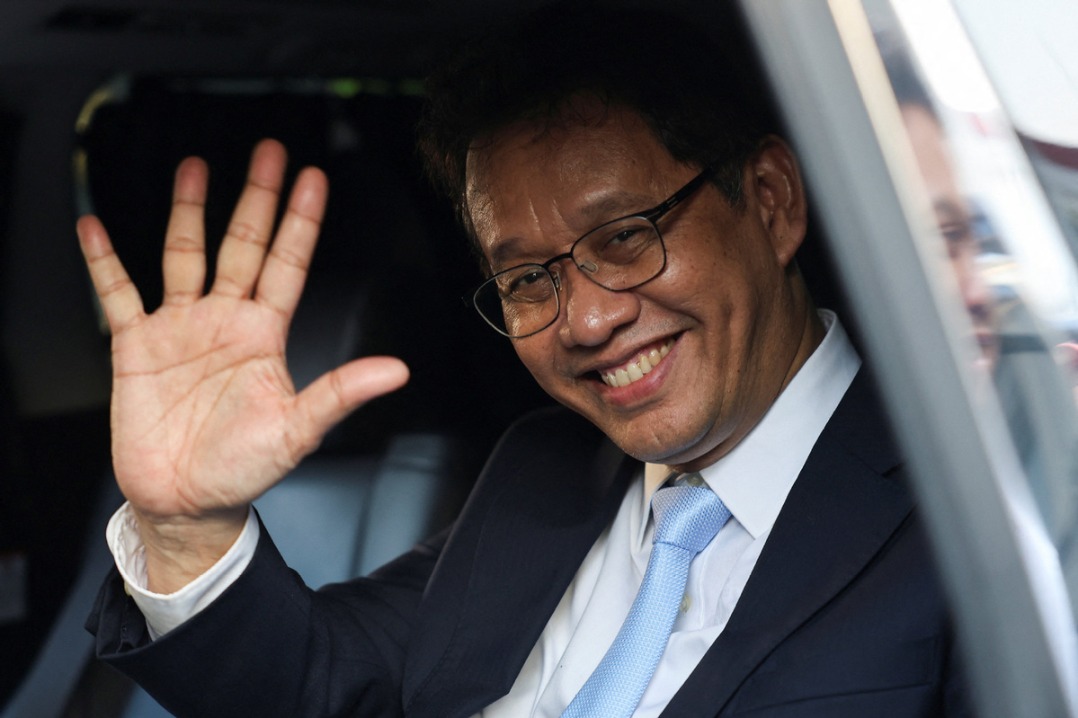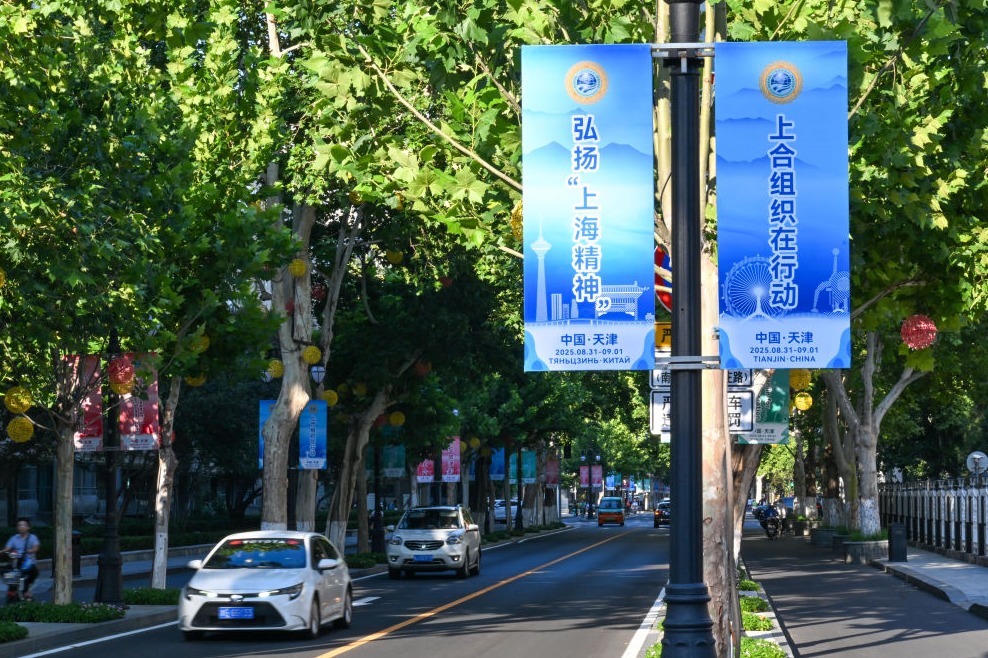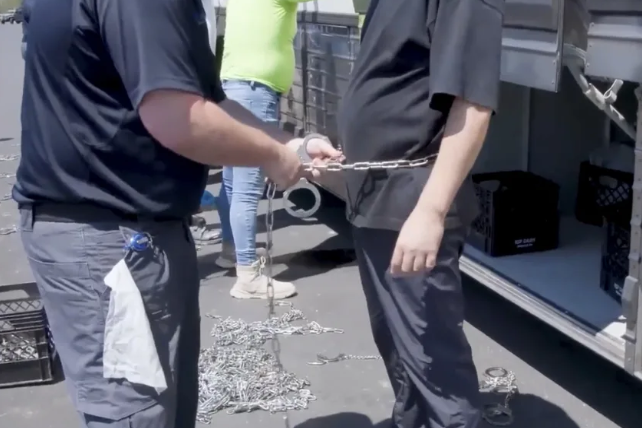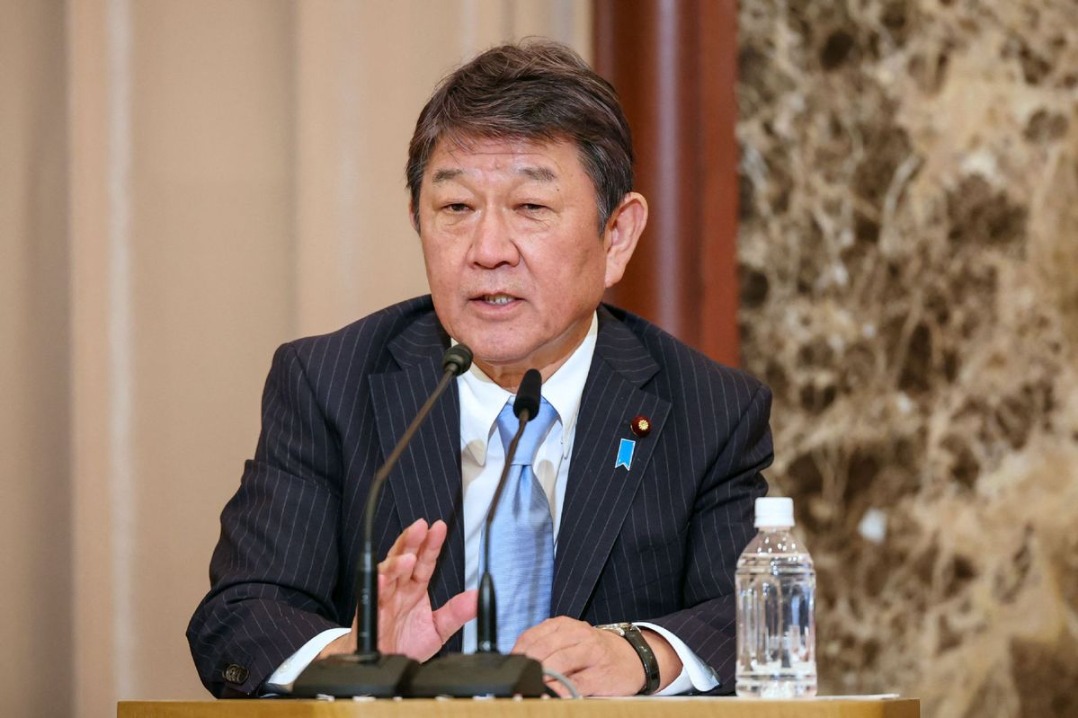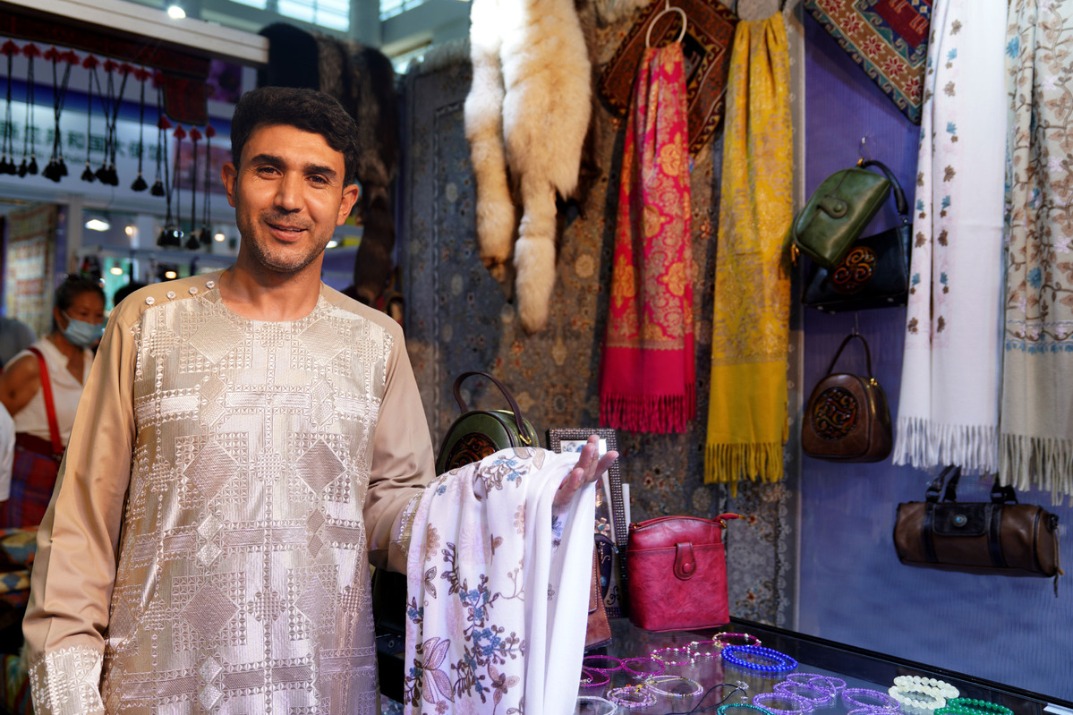US visa crackdowns to hurt investments

Tighter US visa crackdowns threaten to slow South Korea's investments in the country, as companies face rising costs and the growing hesitancy of technical staff to return, analysts warn.
Concerns mounted after United States immigration authorities detained about 300 South Korean nationals on Thursday during a raid at the construction site of an electric vehicle battery plant in the southern state of Georgia.
The facility — a $6.3 billion joint venture between Hyundai Motor and LG Energy Solution — was the target of the largest single-site enforcement operation in the history of the US Department of Homeland Security.
The crackdown is likely to delay construction of the factory, one of Georgia's largest projects and expected to create 8,500 jobs, as work stalls and personnel return to South Korea, said Yang Jun-sok, an economics professor at the Catholic University of Korea in Seoul.
"South Korean people have been exasperated with what is perceived as bullying by the US to force investment in the US," Yang said.
"And with the Hyundai incident, more people are likely to think that dealing with the US is 'damned if you do, and damned if you don't'."
Hyundai has advised its employees to postpone business trips to the US, Yonhap News Agency reported.
In an earlier statement, the company said that none of the people detained were directly employed by it, and it has zero tolerance for those who do not follow the law.
LG Energy Solution said it has suspended most business travel to the US and advised staff already abroad to either return home immediately or wait at their accommodations.
On his social media platform, US President Donald Trump said on Sunday that all foreign companies should respect US immigration laws and hire and train US workers.
South Korea has pledged $350 billion in US investments as part of a tariff deal. Separately, the Federation of Korean Industries said last month that South Korean companies plan to invest about $150 billion in the US.
To send staff to US construction sites, South Korean companies rely on the H-1B visa for foreign specialists. But with just 85,000 visas issued annually worldwide through a random lottery, access remains limited.
Seoul has been pressing Washington to create up to 15,000 E-4 highly skilled work visas for South Korean professionals, but has yet to gain any progress.
Park Chong-hoon, head of research at Standard Chartered Bank in Seoul, said the South Korean government's immediate priority should be negotiating with the US to facilitate visa issuance for South Korean specialists, as it will take time to hire and train US personnel.
"When you compare at the GDP level, US labor is going to be at least 2.5 times more expensive than South Korean workers," Park said, adding that local employees lack on-site experience and technical knowledge.
Although the crackdown is unlikely to affect South Korean companies' existing investment commitments in the US, Park said the pace of implementation will depend heavily on US actions.
In an interview with Yonhap, Kim Pil-soo, an automotive engineering professor at Daelim University, said the incident was "humiliating".
He also advised companies to reassess their US strategies, citing the shortage of skilled workers, high labor costs and powerful unions in the US.
The South Korean government should make efforts to deal with the incident seriously and set up preventive measures, Kim said.
However, noting that the factory was established under former US president Joe Biden's administration, Yang from the Catholic University of Korea said it is unclear whether Hyundai will get much assistance from the Trump administration.
"The only argument which will work is that, unless more visas are issued, the investments and job creation will not take place," Yang said.
South Korean Trade Minister Yeo Han-koo said on Monday that the government will make the "utmost" efforts to ensure its companies do not face unfair treatment in the US.
kelly@chinadailyapac.com
















